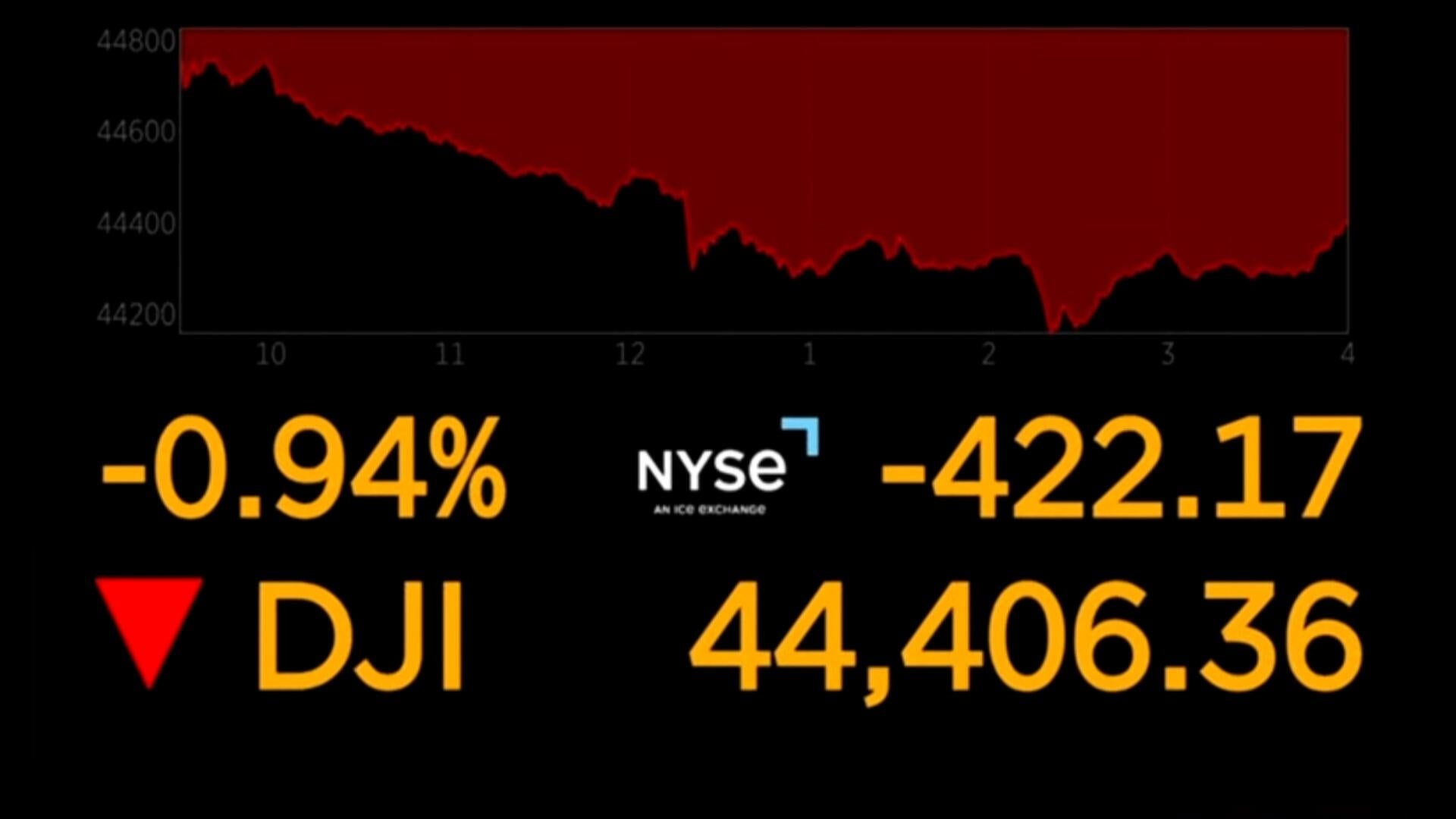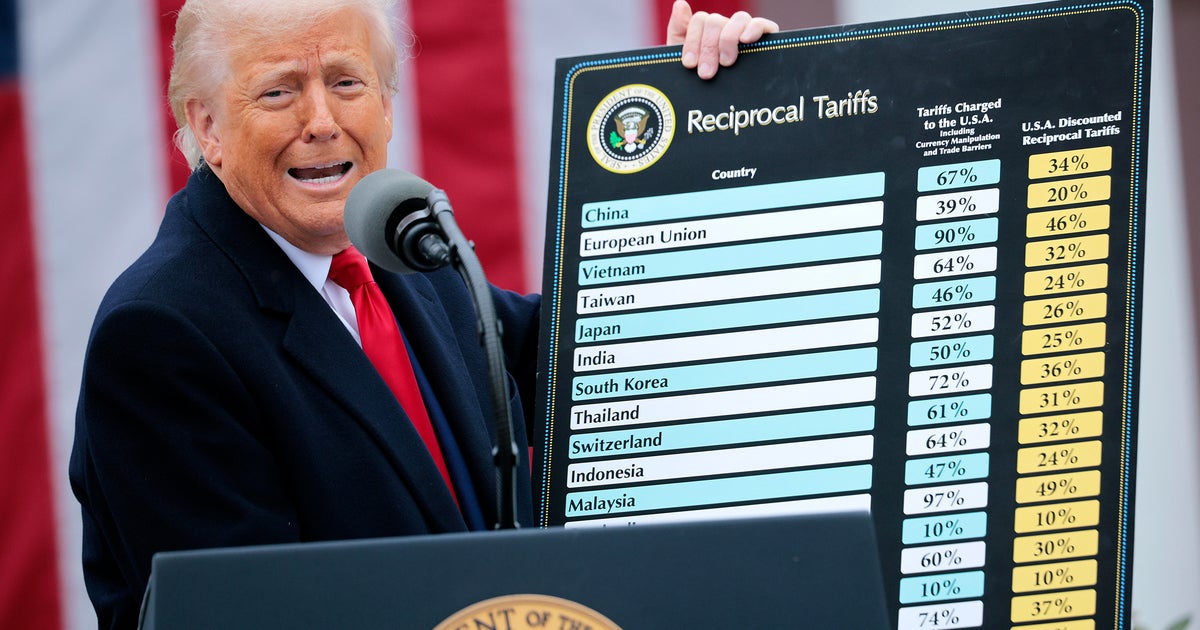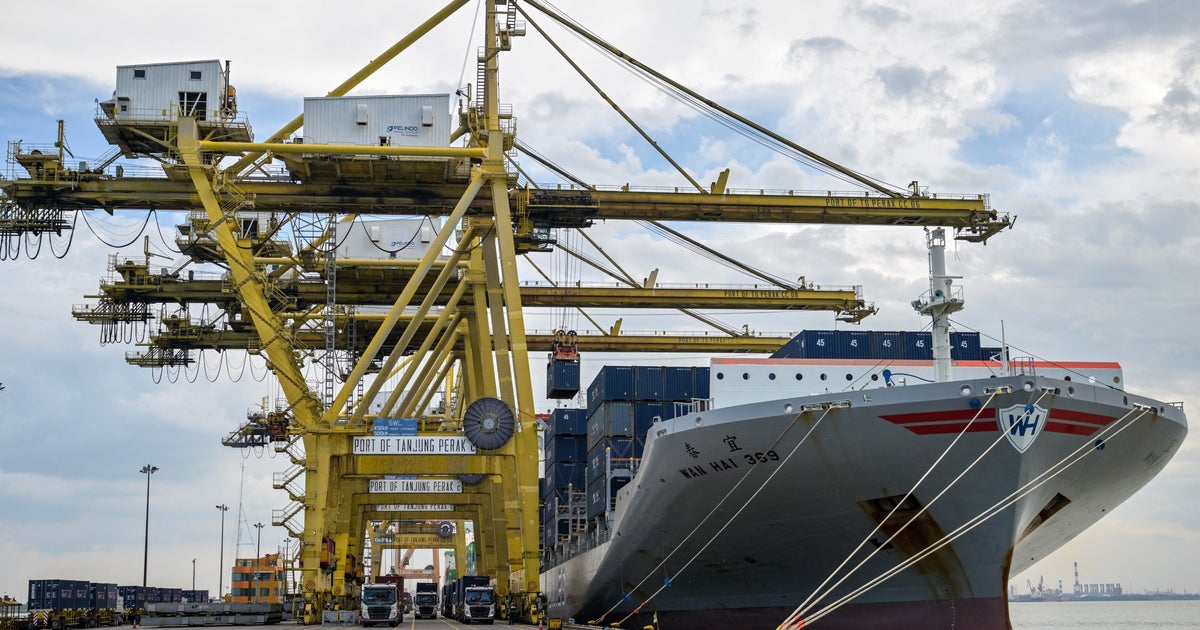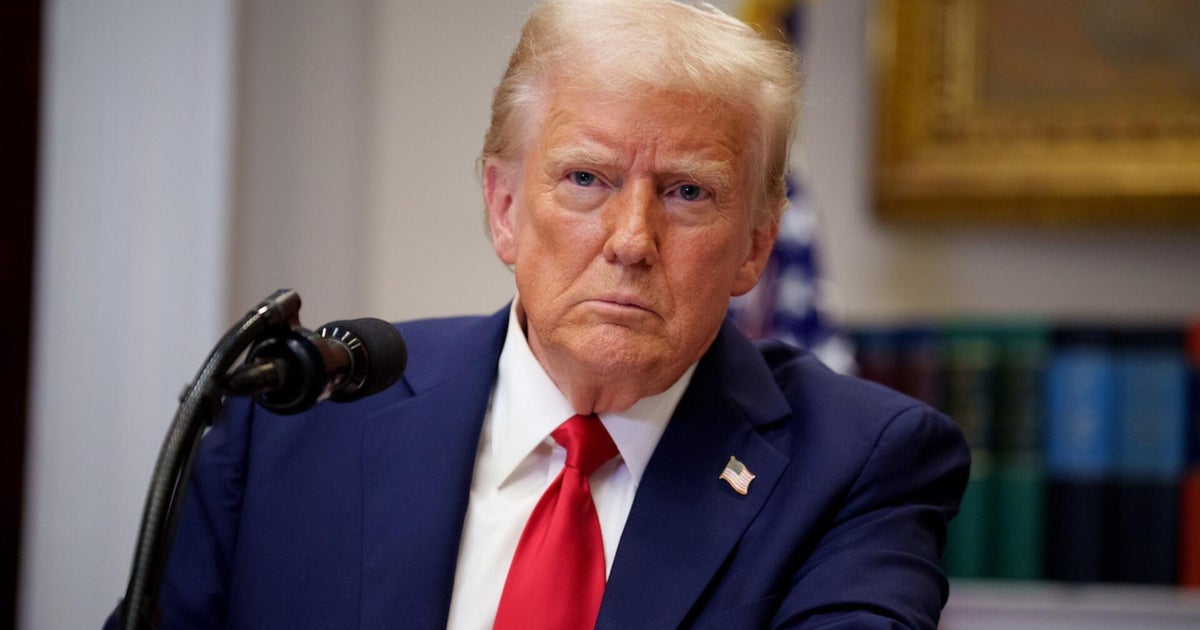Stocks slump after Trump threatens new tariffs on more than a dozen countries
Stocks sank Monday after President Trump announced a fresh salvo of tariffs on more than a dozen countries as he works to rectify what he views as persistent trade imbalances.
The S&P 500 as fell 49 points, or 0.8%, to close at 6,230, while the Dow Jones Industrial Average fell 422 points, or 0.9%, to close at 44,406. The tech-heavy Nasdaq Composite slid 0.9%.
Markets are once again feeling the heat after the president said Monday that he would impose tariffs on 14 countries starting August 1. The countries include Japan, Kazakhstan, Malaysia South Korea and Tunisia (which all face potential levies of 25%); and South Africa (which would be subject to 30% duties); Indonesia (32%); Bangladesh, Serbia (35%); Cambodia, Thailand (36%) and Myanmar and Laos (which face a 40% tariff rate). Mr. Trump posted tariff letters to each of the countries on Truth Social detailing the new levies.
The letters come just days ahead of Wednesday, July 9, when the pause on U.S. reciprocal tariffs had originally been set to expire. The president and his team have been working to strike deals with trading partners over the last 90 days before the deadline. Mr. Trump is now expected to sign an executive order extending the tariff freeze to August 1.
The president also said Sunday that he would impose an additional 10% tariffs against the BRICS bloc of developing nations, which held a summit in Brazil over the weekend.
Stock indexes in Europe ended mostly higher on Monday, while Asian markets closed mostly lower.
The new flurry of trade activity could pose a risk to markets, which have been climbing since April 2, when Mr. Trump announced his "Liberation Day" tariffs. The S&P 500 rose more than 20% in late June, hitting a record high, with experts at the time citing favorable trade headlines as one of the main reasons for the turnaround.
Stocks also jumped last week after a better-than-expected jobs report. However, analysts continue to caution that tariffs could hit financial markets in the months ahead.
"We think investors continue to underestimate the impact of tariffs — just because import taxes won't be as bad as they appeared on Apr 2, the tariff burden will still be significantly larger going forward than it was in January as the [government] becomes increasingly reliant on this revenue given extreme fiscal imbalances," said Adam Crisafulli, head of Vital Knowledge, in a research note.




